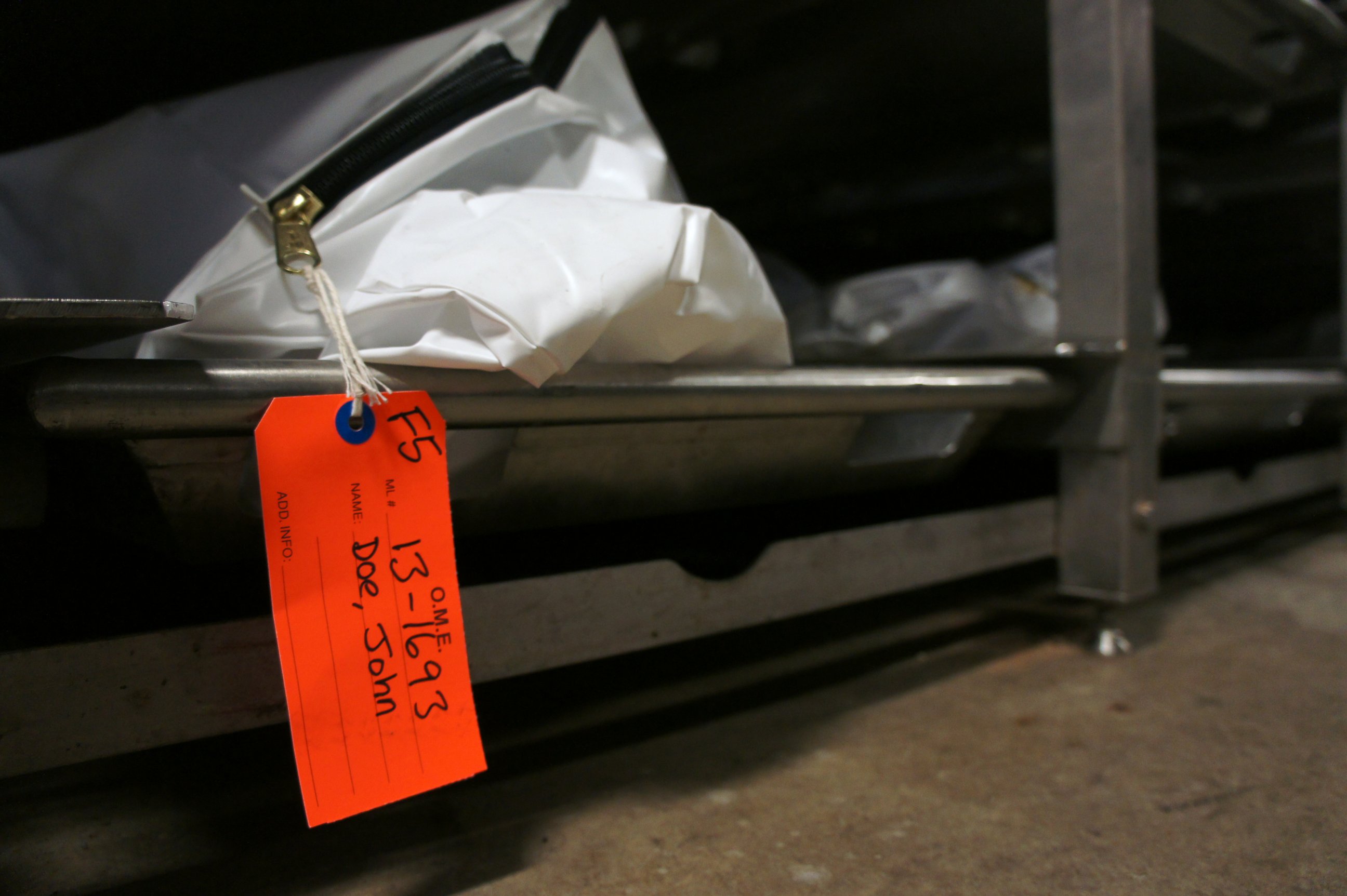A Most Dangerous Journey: Tracing the Human Cost of Immigration From Altar to Arizona
Migrants spend their life savings and risk death to try to cross the border.
Jan. 3, 2014— -- At the Pima County morgue in Tucson, Ariz., anthropologist Robin Reineke was going through the personal effects of the hundreds of unnamed migrants who try to cross the border between the United States and Mexico each year but instead wind up here among the dead.
Reineke co-founded and is the executive director of the Colibri Center for Human Rights, which helps families of border crossers find missing loved ones.
It's "important for us to think about the human cost of our border today, the human cost of immigrations," she said.
Reineke keeps a locker room filled with personal effects found with the migrants, from clothes to wallets to deodorant. Among the most popular items are depictions of St. Jude, the patron saint of lost causes.
"People are carrying a lot of religious items with them ... rosaries, many, many prayer cards." she said. "It really, to me, indicates ... that you're planning for something where you need extra protection."

The journey across the border is dangerous and carries unimaginable costs. Migrants will spend their life savings and risk death from extreme desert temperatures for a chance to live in the U.S.
Reineke keeps a book filled with notes from families on how the border crossers disappeared, including what they were wearing and pictures of what they left behind.
"They haven't found someone yet and they don't know what happened," she said. "Their son or daughter called from Altar and said, 'Mom, we're crossing the border tomorrow. As soon as we get across I am going to call you,' and they never heard anything."
Altar is a small Mexican town located some 66 miles south of the U.S.-Mexico border. It is an infamous, dusty crossroads for migrants coming to the U.S. illegally, the coyotes, people who get paid to smuggle others into the U.S., and the drug cartels who, some say, control the town.
Sister Mercedes helps run a shelter for migrants in Altar and is untouched by the drug cartels. In this rowdy, company town, "the economy is all based on the immigrants," she said in Spanish. "Yes, the immigrants sustain the town."
At the heart of town is the "zocalo," or center square, where Sister Mercedes said coyotes and border crossers meet. She said people come here from all over, Nicaragua, Honduras, El Salvador, Guatemala, not just Mexico, in hopes of making it into the U.S. The coyotes line the square with their gutted white vans, equipped with wooden benches to transport as many migrants as possible at once.
"They take 20, even 30 people in there," Sister Mercedes said. "Like sardines."
In her experience, Sister Mercedes said coyotes in Altar charge each border crosser 3,000 pesos or about $230 for the two-hour drive to the border. But one coyote we spoke with swore the price was only 100 pesos, or about $8, per person.
There are stores along the square selling supplies, such as camouflage bags, jackets, scarves, ski masks, blankets, toiletries, rosaries and carpet shoes -- shoes with carpeting for soles.
"That's what they put on so that they don't leave footprints in the desert," Sister Mercedes said. "So that the Border Patrol doesn't find them. ... The wind erases everything."
One store owner said the bags cost 80 pesos, about $7. A scarf is priced at 100 pesos, or $8. The carpet shoes were going for about 130 pesos, or roughly $10. It's a profitable little shopping center.
"People are in very difficult situations, make very difficult choices," he said. "I don't believe they are criminals. These are people either fleeing violence or looking for a better life for themselves of their families."
One border crosser named Rofino, who had already traveled from Honduras to Nogales, planned to cross the U.S. border into Texas the following day. He said he was a chef who couldn't find work in Honduras so he was heading north to help his family. So far, he said he had been on the road for 20 days and was broke. He said his life savings of $500 was extorted from him at drug cartel checkpoints. Nevertheless, armed with a backpack, a jacket and a Bible, Rofino said he was not afraid to cross the border.
"I'm with God, man," he said in Spanish.
But for some, the harsh desert and the U.S. border patrol have stopped their dreams. Irena Diaz said her last two attempts to cross resulted in her husband getting arrested and detained for six months in the U.S. She said she wants to make the trip to give her two children a better life.
"It's important to be in the United States for my children," Diaz said in Spanish. "They'll go to school and learn English, that way they won't have as difficult a life as we've had. They'll have a better job and won't suffer as much."




